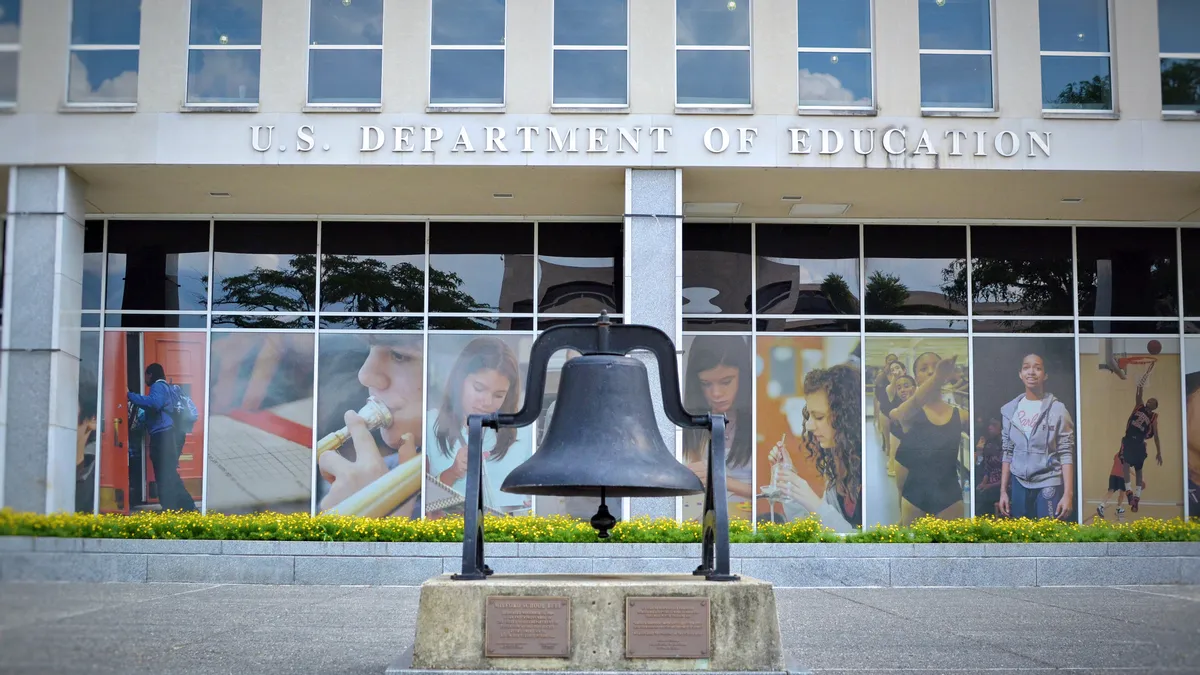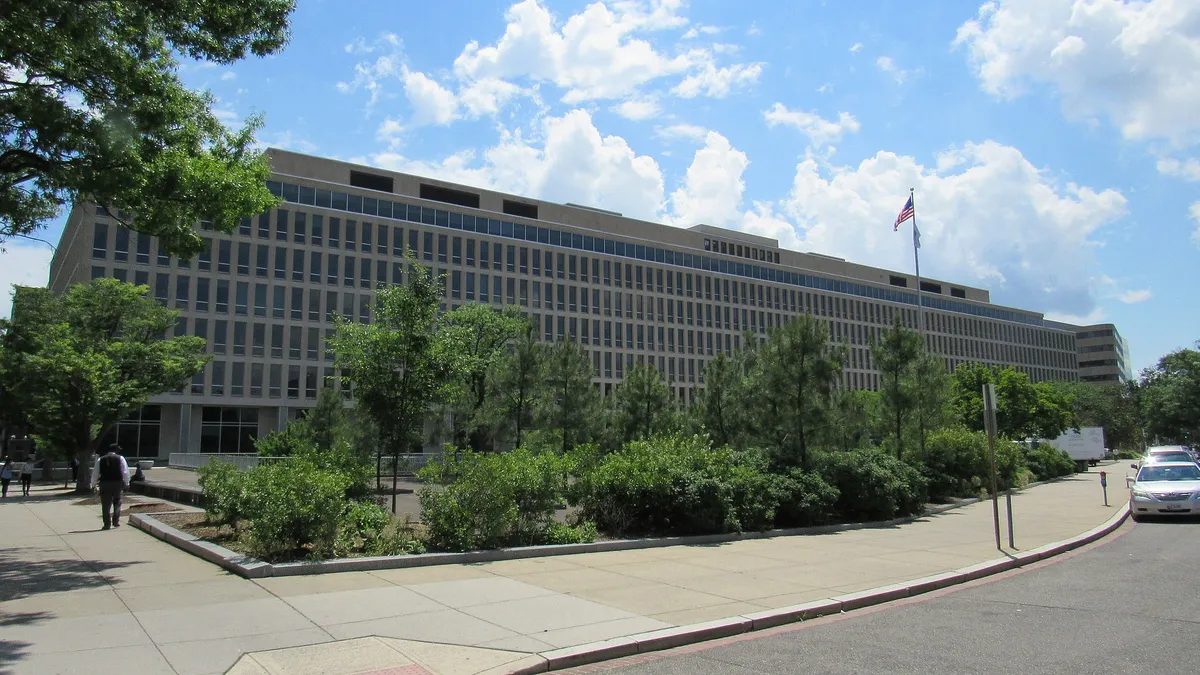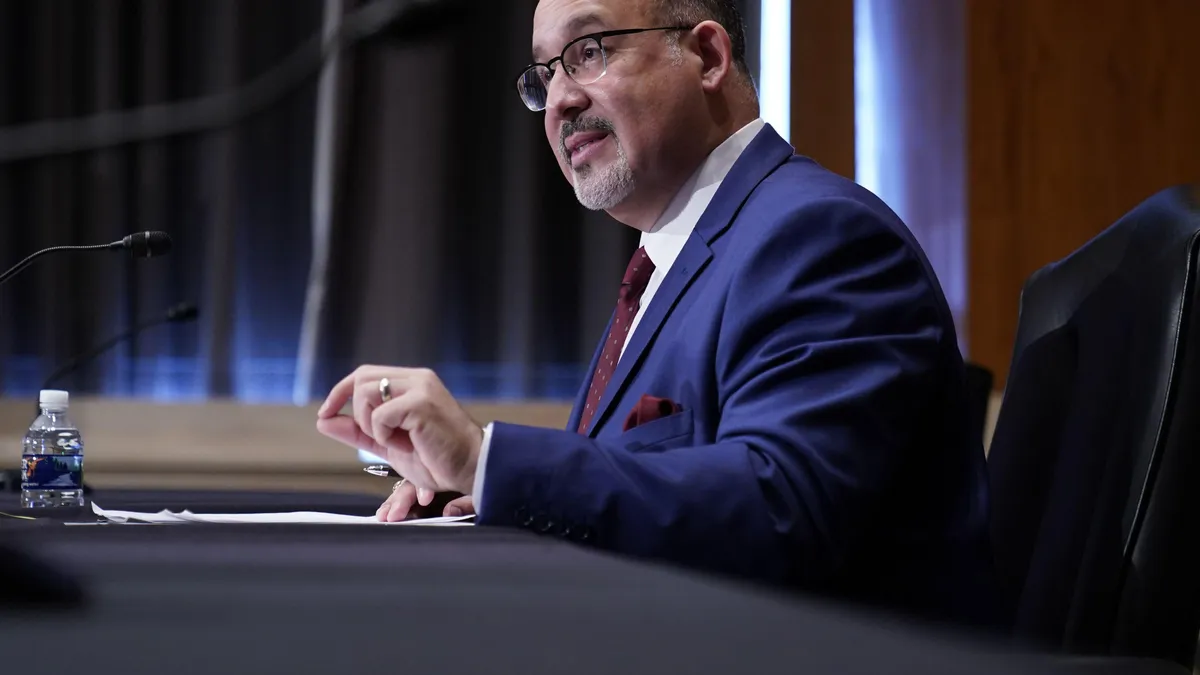Dive Brief:
-
Arizona State University violated the Clery Act, a key federal law that requires public disclosure of some campus crimes, the U.S. Department of Education determined in a letter made public this week.
-
Students who report sexual violence, and those they are accusing, must be told in writing simultaneously about the outcome of a disciplinary hearing related to the allegations, according to federal rules.
-
This did not occur with one student who reported her rape last year, as Arizona State officials required her to sign a nondisclosure agreement before receiving the case's written findings.
Dive Insight:
The Clery Act requires colleges that receive federal funding to report certain crimes to the federal government.
The Education Department beefed up enforcement of the law over the last several years, fining the University of California, Berkeley, nearly $2.4 million for Clery violations related to misclassifying crimes. It handed Michigan State University a $4.5 million fine for failures in handling reports of sexual abuse by former athletics doctor Larry Nassar, who pleaded guilty to sexually abusing patients.
An amendment to the Clery Act in 2013 expanded its scope, setting up new standards for campus disciplinary proceedings, including the mandate that colleges inform students of their outcome in writing.
The department has long held, however, that colleges can't put conditions — such as a nondisclosure agreement — on students accessing case information they're entitled to under the Clery Act.
Arizona State infringed on this provision. The department's letter details the university's infractions. The letter was released Tuesday by the L.L. Dunn Law Firm, which helped a female student in her complaint to the Ed Department accusing the university of Clery violations.
The department found that Arizona State told the student, who reported her rape in February 2020, that she had to send an email to learn more about the outcome of the disciplinary hearing in her case. University officials also said that she must attend a meeting to get this information, according to the department.
After the student told the institution about her right to get the information in writing, officials made her sign a nondisclosure agreement about the case.
When the written notice was eventually released to her, it failed to give "clear rationale" for the case's outcomes and didn't mention the student's right to appeal the decision, according to the department.
The agency also said it was of "special concern" that the university tried to place conditions on the student's adviser in the case to keep participating after the investigation and hearing ended. The letter does not detail what those conditions were.
An Arizona State spokesperson said in an emailed statement that the university "prides itself" on its "robust system" for investigating sexual assault cases and that it continuously updates those policies. The spokesperson said the school "immediately engaged" with the department about the allegations and made its requested changes to its procedures.
The department said Arizona State must revise its policies to align with Clery and publish them in its annual security report. The school was not fined.
But S. Daniel Carter, a Clery expert and president of consulting firm Safety Advisors for Educational Campuses, contends that the university's actions were "highly illegal" and a "clear violation of Clery Act requirements."
Carter said he helped establish the legal precedent against gag orders in the 2000s while working at what is now the nonprofit Clery Center, which helps train colleges in such safety laws. In the cases he worked on, the department found that Georgetown University in 2004 and the University of Virginia in 2008 had similarly run afoul of the Clery Act by trying to get students to keep the details of their sexual violence reports secret.
Carter said of the Arizona State case that he hasn't seen "as blatant a violation of the law as this in a very long time," and he is unaware of other institutions that were requiring nondisclosure agreements.
























